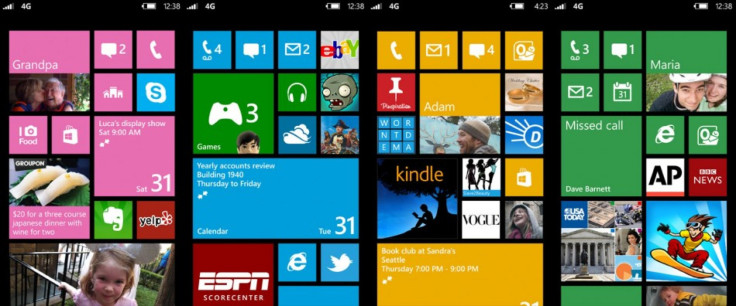Windows Phone 8 Release Revealed: Samsung Outs ‘Odyssey’ and ‘Marco’ Devices, Features Fans Can Expect [SPECS]

Windows Phone 8 is expected for a release date close to the Windows 8 rollout, and Samsung has just unveiled at least two potential devices it will be manufacturing. One will be called "Odyssey" and the other will be called "Marco."
The Windows Phone 8 handsets were revealed in court as part of the Apple vs. Samsung trial, and both phones are marked as running on the Qualcomm MSM8960 chipset, The Verge reports. This dual-core 1.5GHz system is the chipset that the Redmond, Wash.-based company has been using to test its Windows Phone 8.
Previously, the only rumored Windows Phone 8 device was thought to be called "Apollo." However, the "Odyssey" device was described as an "iconic smartphone" by the company and will feature a 4.65-inch Super AMOLED display. "Odyssey" will also include HD resolution and an 8-megapixel rear-facing camera. The documents also indicated that this Windows Phone 8 device will feature Near Field Communication (NFC) capability, a suggestion that it will be compatible with Microsoft's upcoming Wallet Hub and Tap+ Send features.
"Marco," contrastingly, will feature a 4-inch S-AMOLED display, the Verge reports, with WVGA resolution and a 5-megapixel rear camera. Both of these Windows Phone 8 releases will be LTE compatible, and should be launching in the fourth quarter of 2012. This lines up with the previously rumored Windows Phone 8 release date of November, with the Release to Manufacturing launch set to be ready for September.
The full Studio Developers Kit (SDK) for Windows Phone 8 has been leaked online, revealing some surprises about Microsoft's next mobile operating system. The SDK comes complete with a version of Visual Studio Express for Windows Phone, according to Network World, and only installs on a 64-bit edition of Windows 8. The major features of Windows Phone 8 are no secret for anyone following the device's development, such as the company's decision to use the same kernel in its mobile and desktop operating systems. Microsoft will be ditching the Windows CE kernel with Windows Phone 8, which will make porting apps much quicker.
One piece of shocking news to emerge from this leaked SDK is that there is no JavaScript support.
"This is a bit surprising because I and most developers were under the impression that Microsoft would support the migration of Silverlight apps to HTML5 and JavaScript," writes Andy Patrizio of Network World. "But there isn't even support for JavaScript to access the phone's services. The best you can hope for is using the JavaScript support in IE10 [Internet Explorer 10]."
This change could be part of the massive shift Microsoft is taking with its entire Windows 8 operating system. The company is moving from a desktop-based to a mobile-centric operating system with its next software upgrade, and is expected to be a radical overhaul from the current Windows 7. Users will have the option of choosing between the Metro-style interface for desktops or a traditional one.
However, the decision to mandate that all apps for the Metro layout must go through the Windows store has stirred some controversy. Gaming industry giant Gabe Newell of Valve to call the OS "a catastrophe" for PC lovers, with Blizzard Entertainment's Rob Pardo echoing his sentiments via Twitter. This is because the necessary Windows Store transactions likens the Microsoft OS to that of iOS and takes away from its main selling point: an open platform.
Windows Phone 8 is expected for a release date close to Microsoft Windows 8 unveil on Oct. 26. Samsung has been one of the few electronics manufacturers to offer the WIndows Phone 7 recently, but Windows Phone 8 partners HTC, Nokia and Huawei will also be on board for the next-generation smartphone.
© Copyright IBTimes 2024. All rights reserved.






















